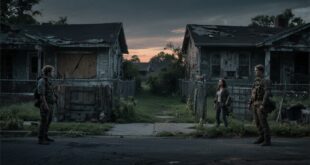When the money system collapses, the only real economy left is trade. History has proven this repeatedly. When the Weimar Republic suffered catastrophic hyperinflation in 1923, the German mark became worthless, and people resorted to trading food, tools, and services just to survive. Historians note that “at the currency’s lowest point, 4.2 trillion marks were worth a single U.S. dollar, causing the country to largely revert to a barter system” (History.com). What that teaches preppers today is simple: when the paper money in your wallet cannot buy bread, bartering becomes the only way forward.
A prepper’s guide to bartering is not an abstract idea or just a fun exercise in survival thinking. It is a blueprint that can keep families alive when the fragile systems we take for granted stop working. Governments can manipulate currencies, banks can close their doors, and digital accounts can vanish with a single keystroke, but people will always need food, water, medicine, warmth, and security. The prepper’s guide to bartering identifies what will actually hold value when collapse strips away the illusion of stability.
Even in early American history, barter was central to survival. The State of Franklin, a breakaway territory in the late 1700s, attempted to create its own independent government. One of its first actions was to legislate barter as an official system because currency was unreliable and scarce (History.com). Collapse does not make barter possible, it makes barter necessary.
Why Bartering Becomes Essential After Collapse
When society unravels, money loses meaning. Venezuela’s collapse in the 2010s offered a chilling modern example, where families used wheelbarrows of cash to buy bread while others traded rice or cooking oil directly. In situations like that, the government may print more money, but it cannot print food or water. The prepper’s guide to bartering shows us that the real wealth in collapse is stored in tangible goods and practical skills.
In every historical collapse, barter rose because people had no other choice. It was not about luxury but about survival. Farmers traded grain for tools, fishermen swapped their catch for firewood, and neighbors exchanged labor for medical help. In modern times, whenever disasters hit and supply chains falter, people instinctively trade. During blackouts, bottled water and batteries became more valuable than credit cards. During Hurricane Katrina, simple items like fuel and canned food commanded enormous worth.
Bartering is also about trust. A barter transaction requires face-to-face negotiation and creates networks of survival. Families who prepare for barter not only protect themselves but also create bonds in their community that can help everyone endure. The lesson for preppers is clear: stock what you need, stock extra for trade, and prepare to barter wisely when collapse removes all other options.
Items That Will Hold Value After Collapse
Every prepper’s guide to bartering must begin with food. It is the most basic human need and the first thing to disappear from store shelves during crisis. Canned goods, dried beans, rice, pasta, and freeze-dried meals all make excellent barter items because they store well and are easy to portion out. Spices, sugar, coffee, and salt will become prized luxuries, not because they sustain life directly but because they provide comfort and variety to stressed families. Salt alone has held trade value for thousands of years, and in collapse it will again.
Water and purification supplies are next. Clean drinking water is life itself, and in many collapses it has been the single most valuable resource. Stockpiling bottled water is smart, but also consider purification tablets, portable filters, and water storage solutions. These are items that can be bartered in small units and will always command attention.
Medical supplies will become priceless. Basic first aid items like bandages, antiseptic, pain relievers, and vitamins will trade quickly. More advanced items like antibiotics, sutures, and professional gear will be worth even more. In times when hospitals close or medicines run out, people will exchange nearly anything for health and healing.
Energy sources will also rise in value. Firewood, propane, charcoal, candles, batteries, and solar chargers will all become barter currency. When the grid collapses, the ability to produce light, heat, and cooked meals will separate survivors from victims. Ammunition, hunting gear, and self-defense tools will also retain enormous barter value, though trading them can carry risks. Hygiene items like soap, toothpaste, razors, and feminine care products are often overlooked but will be deeply appreciated. Cleanliness prevents disease and restores dignity, which means these items will always be in demand.
Services That Can Be Traded in a Barter Economy
Not everyone has a massive stockpile, but every prepper has something to offer. The prepper’s guide to bartering emphasizes that skills can be traded as effectively as goods. A person with carpentry skills may fix a roof in exchange for food. Someone with medical training may treat wounds for water or shelter. Farmers who can grow food beyond their own needs will never go hungry, because their labor and knowledge are always valuable.
In historical collapses, people with practical skills often fared better than those with money or status. Blacksmiths, midwives, teachers, and mechanics could barter their services for goods and protection. In Argentina’s financial collapse, local barter clubs were filled with people trading not only clothing and canned goods but also tutoring, dental work, and home repairs. Skills cannot be confiscated and they do not spoil. They are one of the most resilient forms of survival wealth.
Entertainment may also hold surprising value. In grim times, stories, music, and small comforts lift spirits. It may not seem practical, but even morale has barter power. Preppers who develop a wide range of skills now will have not only security but leverage in the uncertain economy of collapse.
Risks and Realities of Bartering After Collapse
Bartering is not without danger. Desperation breeds violence, and showing your supply openly can make you a target. The prepper’s guide to bartering stresses security and discretion. Never reveal the full extent of your stockpile. Only bring out what you are willing to trade. Work through trusted contacts whenever possible. Create networks before collapse so you know who can be relied upon when systems fail.
Another key strategy is stocking small, divisible trade goods. Trading a handful of matches, a single can of beans, or a strip of bandages is safer than parting with a bulk supply. Having items in varying sizes gives you flexibility and prevents you from being forced into bad deals. Value will shift as conditions change. What is abundant in one season may become priceless in another. Preppers must be ready to adapt and keep their eyes on what their community needs most at any given time.
Finally, bartering is about judgment. Not every trade is equal. Some trades are about survival in the moment, others are about building alliances for the future. Choose wisely who you trade with and what you offer. Practicing barter now, even casually with fellow preppers, sharpens instincts and builds the confidence to negotiate in real survival situations.
Final Thoughts on the Prepper’s Guide to Bartering
Money may rule the world today, but when collapse comes, it will be worthless paper. The prepper’s guide to bartering reminds us that true wealth is stored in food, water, medicine, fuel, defense, and skills that cannot be taken away. Preppers who plan now for barter will not only survive but thrive in the post-collapse economy.
History proves this truth again and again. From the hyperinflation of Weimar Germany to the barter laws of the State of Franklin, people adapt when currency fails. They trade what matters most. Preppers should not only stockpile wisely but also cultivate barter skills, because survival is not just about what you have, but what you can exchange. When society crumbles, the barter economy becomes the backbone of life. Prepare for it now, and you will be ready when others are not.
Frequently Asked Questions About Bartering After Collapse
| Question | Answer |
|---|---|
| What is bartering after collapse | Bartering after collapse is the direct exchange of goods or services without money. A prepper’s guide to bartering focuses on essentials like food, water, medicine, fuel, and skills that everyone needs for survival. |
| Which items will actually hold value after collapse | Canned food, rice, beans, bottled water, purification tablets, medical supplies, batteries, candles, ammunition, and hygiene products are the most reliable survival bartering items. |
| Do skills matter in a barter economy | Yes. Skills such as first aid, carpentry, gardening, mechanical repair, and security are valuable in bartering after collapse. Services can often trade better than physical goods because they cannot be stolen or spoiled. |
| How do I barter safely | Only trade small amounts at a time, keep your stockpile private, and use trusted contacts. The prepper’s guide to bartering also advises carrying different value items so you can make fair trades without giving away too much. |
| Are gold and silver better than barter items | Precious metals can hold value long term, but in immediate survival situations, food, water, medicine, and fuel will trade faster. The truth of what will hold value after collapse comes down to what keeps people alive today. |
 Survive Our Collapse Building Self-Reliance in an Uncertain World
Survive Our Collapse Building Self-Reliance in an Uncertain World




